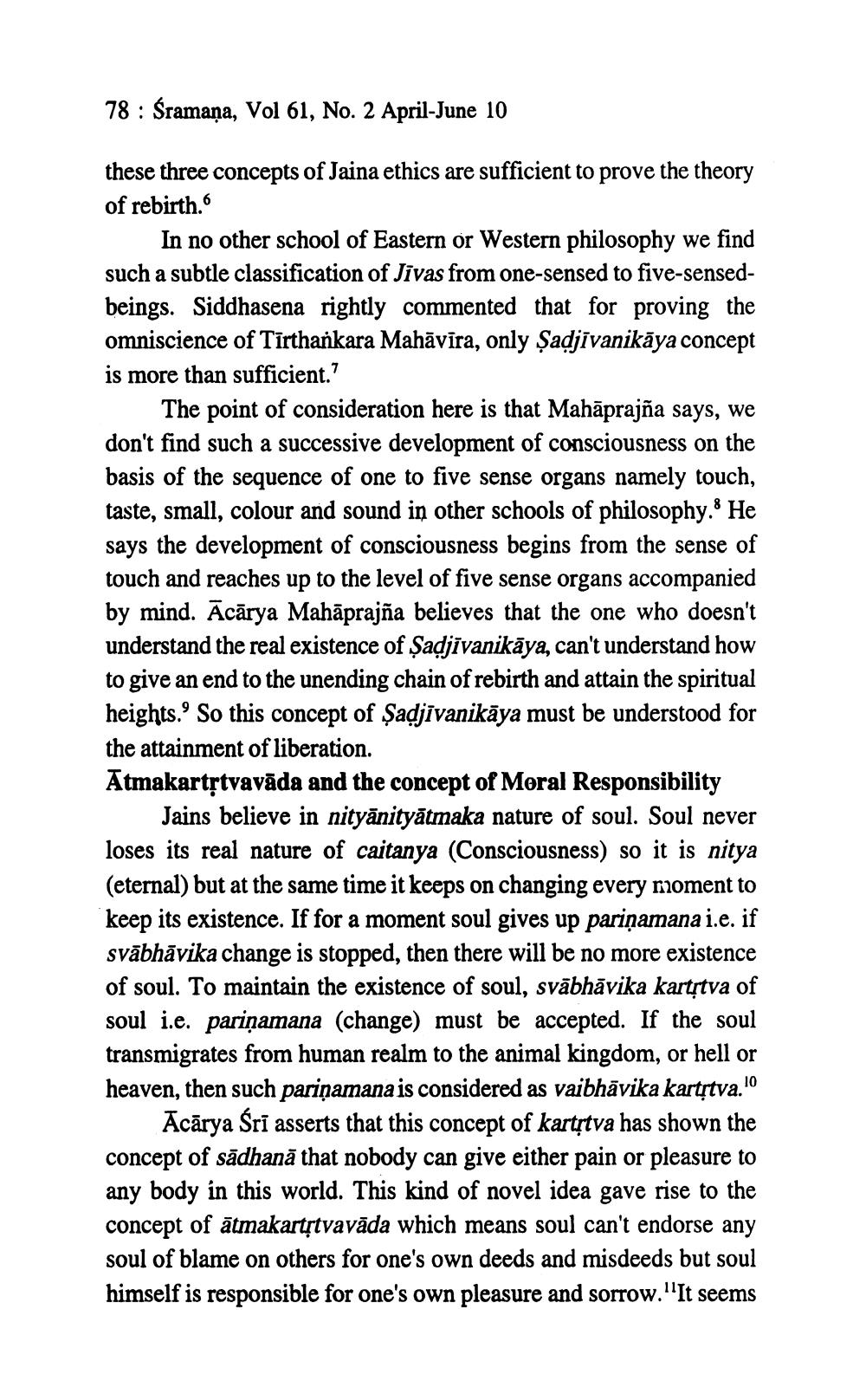________________
78 Śramana, Vol 61, No. 2 April-June 10
these three concepts of Jaina ethics are sufficient to prove the theory of rebirth."
In no other school of Eastern or Western philosophy we find such a subtle classification of Jivas from one-sensed to five-sensedbeings. Siddhasena rightly commented that for proving the omniscience of Tirthankara Mahāvīra, only Şaḍjīvanikāya concept is more than sufficient."
The point of consideration here is that Mahāprajña says, we don't find such a successive development of consciousness on the basis of the sequence of one to five sense organs namely touch, taste, small, colour and sound in other schools of philosophy. He says the development of consciousness begins from the sense of touch and reaches up to the level of five sense organs accompanied by mind. Acarya Mahāprajña believes that the one who doesn't understand the real existence of Sadjīvanikāya, can't understand how to give an end to the unending chain of rebirth and attain the spiritual heights.' So this concept of Şaḍjīvanikāya must be understood for the attainment of liberation. Atmakartṛtvavāda and the concept of Moral Responsibility
Jains believe in nityānityātmaka nature of soul. Soul never loses its real nature of caitanya (Consciousness) so it is nitya (eternal) but at the same time it keeps on changing every moment to keep its existence. If for a moment soul gives up pariņamana i.e. if svābhāvika change is stopped, then there will be no more existence of soul. To maintain the existence of soul, svābhāvika kartṛtva of soul i.e. pariņamana (change) must be accepted. If the soul transmigrates from human realm to the animal kingdom, or hell or heaven, then such pariņamana is considered as vaibhavika kartṛtva.10 Acārya Śrī asserts that this concept of kartṛtva has shown the concept of sadhana that nobody can give either pain or pleasure to any body in this world. This kind of novel idea gave rise to the concept of atmakartṛtvavāda which means soul can't endorse any soul of blame on others for one's own deeds and misdeeds but soul himself is responsible for one's own pleasure and sorrow."It seems




